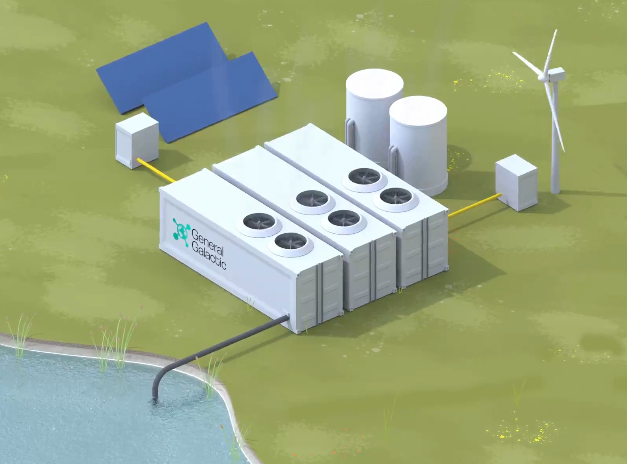Regarding sustainable technologies, clean tech startup General Galactic emerges as a pioneering force with a fresh strategy centered on integrating the entire production stack for e-fuels.
This new startup, born from the ingenuity of former SpaceX team members, aims to give a brand-new identity to renewable power that can help us in our daily lives.
From SpaceX Inspiration to Startup Innovation

Co-founded by Halen Mattison, a former SpaceX engineer, General Galactic was inspired by challenges faced during Mattison's tenure at SpaceX.
While working on propellant generation for the Starship, Mattison envisioned the broader application of producing methane from carbon dioxide not just for Mars colonization but also for Earth. This vision led him to Stanford University, where he met co-founder Luke Neise.
The duo launched General Galactic after identifying a significant opportunity to innovate in the e-fuel sector, a more immediate and earthly application of their Mars-related insights.
Related Article : US Researchers Unveil Affordable Eco-Friendly Decking Boards with Carbon-Negative Design
Strategic Integration to Drive Down Costs
General Galactic has committed to a fully integrated development approach. This decision sets it apart from competitors who may focus on isolated aspects of the fuel production process, such as direct air capture or electrolysis.
By controlling the entire production chain- from carbon dioxide capture and hydrogen production from water, to the final synthesis of methane-the company aims to reduce costs and enhance efficiency significantly.
"The north star for us is to make methane in a way that is literally cheaper to synthesize from the air, to reuse the emissions, than to pump it out of the ground," Mattison told TechCrunch.
The startup's business model focuses on selling the e-fuel itself rather than the technology or equipment used in its production. This approach aligns with its goal of keeping operational costs low and focusing on the scalability and affordability of the end product.
For Mattison, avoiding the common industry practice of maximizing profits from individual components is important. This way, General Galactic can achieve greater cost reductions in e-fuel production.
Modular Design for Scalability and Efficiency
Embracing modern manufacturing trends, General Galactic plans to modularize each key component of its system. This method allows for the mass production of parts, which are easier to transport and can be assembled on-site, thereby reducing manufacturing and construction costs significantly.
Modular systems also facilitate easier and more cost-effective scalability, which is essential for the rapid deployment of climate technologies.
By the end of 2023, General Galactic will have secured $1.9 million in pre-seed funding from venture capital firms, including Box Group and Refactor, and will be poised to proceed with its ambitious plans.
E-Fuel Market Has a Long Way to Go
With General Galactic's aim to refine its technology, the potential impact on the e-fuel market and broader climate goals remains substantial. With a unique blend of aerospace inspiration and rigorous academic research, the startup is well-positioned to significantly contribute to reducing carbon emissions and advancing global sustainability efforts.
The world is watching now, and every move the startup makes could spell a big change in how we produce and consume energy for the years to come.





